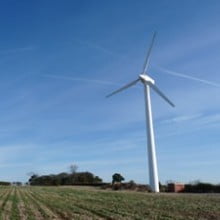 When Jenny, who grew up at Hockerton Housing Project, left to take up a place at University we thought it was an opportunity to ask her what contrasts she noticed between HHP and University life!
When Jenny, who grew up at Hockerton Housing Project, left to take up a place at University we thought it was an opportunity to ask her what contrasts she noticed between HHP and University life!
I recently left Hockerton Housing project to go to the University of Nottingham to study for a Masters degree in Biology.
This move provided a unique opportunity to document my experience and the differences and similarities that I noticed between home and University. It is difficult to compare two such establishments, an eco community of five households I have lived in for fourteen years and halls of residence housing I have lived in for a year which houses around 350 students.
Clearly these living arrangements are on very different scales. However, I will not so much try to compare them but discuss the positive and negative environmental impacts of the University that I noticed in my first year.
On moving into the halls of residence I first noticed that there were photovoltaic cells on the roofs and recycling bins in each block of rooms, making it easy for the students to sort their rubbish. I also noticed that students make good use of public transport as well as choosing to cycle and walk rather than driving. This is something that maybe mostly motivated by money and the absence of parking spaces for students on the campus but which nonetheless contributes to the greenness of the University and students.
Communal living at university lessens the amount of autonomous decisions that you have. For instance regulating lighting and heating in communal areas is difficult. Communal living at University presents the obvious issue of food waste, especially in catered halls where hundreds of students are fed at each meal time. Food is thus cooked in bulk and waste is inevitable. It also makes it impossible for students to choose the source of their food. These are issues which would be hard to resolve. At Hockerton Housing Project families are required to spend part of their week growing food on an organic allotment to supply locally grown food and thus reduce the carbon emissions associated with food production.
For many students it is true that being eco-friendly is not a priority. Students live busy lives and have, not only University studies to complete, but also have to learn to live independently. This is particularly apparent in first year when fending for oneself and coping with living away from home is the main focus!
A significant aspect of University is that it brings together people from all different walks of life. However this also highlighted to me the difference between my and my fellow students upbringings. I was able to access a vast amount of environmental knowledge and understanding when I was growing up, something that many students did not have the opportunity to experience. Thus for most of them coming from a background where recycling is not undertaken and where space heating is used all year round, it must be difficult to see what can be achieved on a day to day basis.
It is clear that the university is involved with environmental issues. Having been asked to write this article I decided to research into the environmental efforts of the University. The University of Nottingham is one of the leading green Universities and is currently 2nd in the UI Green Metric of the world’s leading green Universities. It has a group called the ‘Young Greens Society’ which is affiliated with both the Young Greens and the Green Party and raises awareness of sustainable issues and the Green Party.
 Also Nottingham University School of the Built Environment has a number of exemplar low CO2 emission buildings which are on the campus and provide an opportunity for academic research and evaluation. Students on courses within this Dept. are also regular visitors to Hockerton Housing Project.
Also Nottingham University School of the Built Environment has a number of exemplar low CO2 emission buildings which are on the campus and provide an opportunity for academic research and evaluation. Students on courses within this Dept. are also regular visitors to Hockerton Housing Project.
It is clear that the University makes an effort to be environmentally friendly by producing electricity, providing students with recycling facilities and through its academic efforts. It would be interesting to consider how the University could make sustainability more central to their students life experiences and the impact this could have on the future lives of its graduates. Student welfare is central to the University’s but this service seems to focus primarily on financial, health and academic dimensions and does not prioritise sustainability…..is this a missed opportunity???
If you would like to visit Hockerton Housing Project with a group of students, then please contact us
Jenny Rajan



